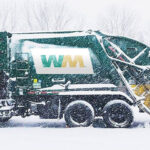Home »

Wildfires and old growth destruction are often related
 “Perceptions,” by Gerry Warner
“Perceptions,” by Gerry Warner
Op-Ed Commentary
Many years ago, some PR hack coined the term “Beautiful BC.” Ah . . . if only it was true!
By the time this dreadful wildfire summer is over even the most ardent B.C. booster – including the Premier – will have to admit the thousands of acres of darkened landscape, torched valleys, burnt–out homes, farms and suburban land including, one small village and a hamlet, presents a sorry sight to the world.
But this is only the beginning!
Climate change, global warming – call it what you will – is revving up its engines, growing stronger every year and every sentient British Columbian knows it. But what are we doing about it?
Sadly, next to nothing as we fill our blue boxes to appease our consciences and allow more LNG plants, dams, and pipelines to be built. Worst of all, our once magnificent forests, the pride of the province, are now reduced to ashes when they once teemed with life. Oh, they’ll come back, but not in the lifetime of most of us and maybe not at all if we don’t change our ways.
This was the message in the government’s long awaited old growth management report, “A New Future for Old Forests” released April 30, 2020, which conservationists initially welcomed until they quickly figured out the report was nothing more than a sly PR document to fool them and the public in general into believing they were serious about protecting old growth when they weren’t serious at all.
This, despite the statement of two professional foresters who wrote the report’s executive summary, saying it was time for a “paradigm shift” in the province’s forest management policies to a model of biodiversity and ecosystem preservation instead of what forestry critics call a policy of cut and run.
How are these issues related? After a decade of fighting forest fires, I assure you they are strongly related and maybe this summer of smoke burning your eyes will help to convince you.
Perhaps the best way of putting it is to say bad forestry practices leads to bad forest fires. Clear cut logging and slash (waste) burning has been the dominant form of logging in B.C. for more than a century and we’ve paid for it big time.
Slash fires can get away and cause major forest fires themselves like the 1973 Eden Fire near Salmon Arm that destroyed 18 homes. Slash fire escapes aren’t as common today but they still happen. Clear cutting is a worse culprit because it fragments the remaining forest and breaks up the canopy overhead making it easier for fires to start and to spread. It may sound counter-intuitive but old growth forests don’t burn easily because their bark is thick and fire-resistant. As well, the canopy of old growth trees prevents most moisture and sunshine from hitting the ground slowing the growth of fuel-laden, “ladder” bushes that often “trigger” fires.
Of course, the problem now is that there is so little old growth left in B.C. – less than five per cent according to some experts – and the second growth timber remaining is fragmented into small patches that burn more easily. Add to this more people recreating in the forest tossing away their cigarettes and not extinguishing their campfires, subdivisions increasing in forested areas next to cities and a warming climate which all increase the probability of fires. And lightning, the number one cause of forest fires, still remains to trigger fires.
So, in many ways we’re the authors of our own undoing. More leisure time means more people in the forest. And they get into isolated areas never accessed before thanks to a proliferation of logging roads and wilderness-eating quad machines, four-by-four vehicles, dirt bikes and the like. And where there are people there are fires. It’s as simple as that. Our very lifestyle causes fires.
Meanwhile our licence plates still say, “Beautiful British Columbia,” but you’ve got to wonder. Our wildfire seasons are getting worse almost every year. Our old growth forests, which resist fires, are almost gone and our government keeps running away from its own report to try and save them.
Something is not adding up here.
– Gerry Warner is a retired journalist, who’s not very optimistic about the future of BC’s forests.







